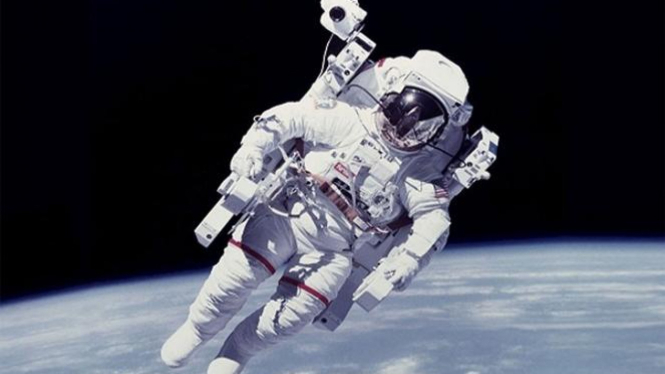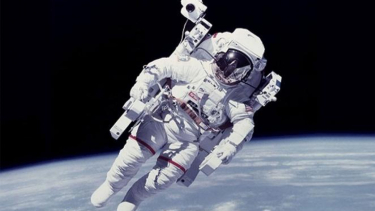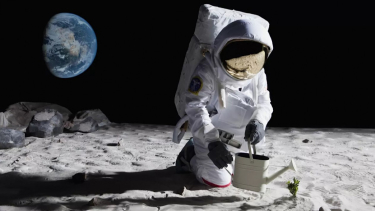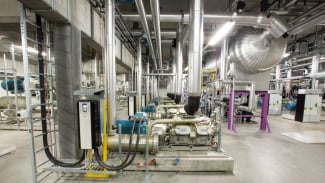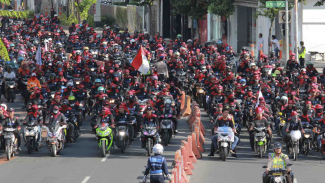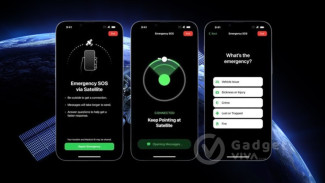- Spacenews
Jakarta – Many of us have dreamed of going to space. maybe you’ve imagined what it would be like to go there International Space Station (ISS) or even discover new worlds.
But traveling in space brings with it a whole set of challenges and hostile environments, so it’s important to recreate the conditions on Earth that have allowed life to develop and thrive.
Spacesuit allows astronauts to exit their spacecraft for short periods of time by providing the air, water, pressure, and physical protection necessary for human survival. But what without one of these advanced suits?
Moreover, sci-fi movies and shows, including “2001: A Space Odyssey” And “Spread,” has depicted astronauts suffering – and surviving – a brief stay in outer space without spacesuits, while others have depicted a series of horrific deaths, as quoted from the Crast net site.
Ilustrasi astronot yang sedang bercocok tanam di Bulan.
- Getty Images
But here in the real world, how long could a person survive if pushed into the harsh vacuum of outer space? The short answer is, not very long.
According to Stephen de May, a senior strategy officer at the European Space Agency (ESA), “in a very short time, in about 10 to 15 seconds, you will pass out due to lack of oxygen.” Areas for human and robotic exploration.
It may seem like a short time, but that’s because you wouldn’t want to hold your breath before going into outer space. In the dark void of space, the oxygen that keeps us alive will become a serious problem.
“The oxygen begins to expand and collapse your lungs, rupturing them, and that causes your blood to boil and bubble, which will immediately cause an embolism and have fatal effects on your body,” De May said.
Divers also face a similar danger when the water pressure drops as they ascend from depth. Before entering space unsafely, you need to empty your lungs as much as possible. A complete lack of pressure also causes other, though less immediate, fatal problems.
Bodily fluids like saliva and tears will start to boil. A human body would also expand, but the skin would be flexible enough to cope with the pressure change, de Mey said, adding that horror film depictions of exploding humans are not accurate.
In the best case, you will have a few seconds before the oxygen in your bloodstream is used up, causing you to pass out.
Because you would be unable to reverse your critical condition, brain death would occur within minutes, unless you were rescued and brought back to the safety of the pressurized, oxygen-rich environment of the spacecraft and revived.
In addition to providing vital oxygen and pressure, spacesuits also protect astronauts from other hazards and harm.
“There’s a temperature problem, and radiation and micrometeoroids are threats. So spacesuits are designed to provide the physical protection of astronauts in outer space," de May said.
Whether an astronaut is in sunlight or in shadow, they will experience extreme temperatures ranging from minus 240 to 250 degrees Fahrenheit (minus 150 to 120 degrees Celsius). low earth orbit (Leo).
These conditions can cause either burning or freezing, although not immediately in the latter case, as body heat does not easily dissipate away into a vacuum.
Spacesuits also protect against different types of radiation. In LEO, there is protection against certain types of radiation. Prolonged or prolonged exposure to electromagnetic radiation from the sun can cause health problems, including radiation sickness and an increased risk of cancer.
UV light will also burn the skin. Excess misfortune of particles from A solar flare Accessing astronauts at the time they were exposed to in space would exacerbate many of these issues.
Micrometeoroids and space debris pose another threat. These travel at a rate of a few or tens of kilometers per second and are a Threats to satellites, spacecraft and astronauts conducting extra-vehicular activities (EVA), or space walk.
Although highly unlikely to affect an unprotected astronaut’s chances of survival given the astronomically small chances of being hit during short periods of time in space, astronauts should be aware of any potential micrometeoroids or space debris that may be moving in orbit. The spacesuit is designed with multiple layers to help protect against.
Living in space without an EVA suit becomes very deadly – very, very quickly. While someone might survive this dire scenario, they would find they have very little air in their lungs and be back in the safety of a pressurized spacecraft within seconds or expect to be rescued and revived within minutes.

